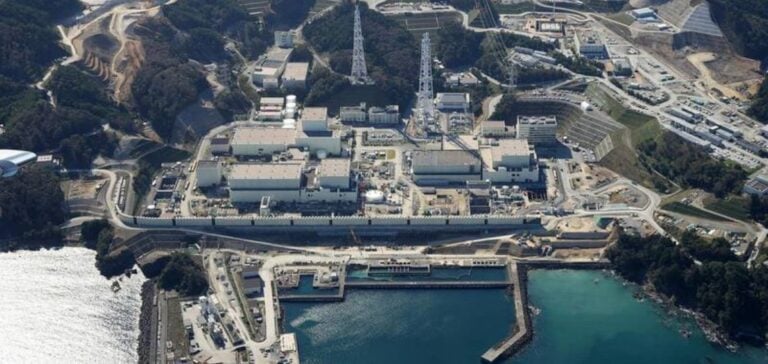Tohoku Electric Power is loading fuel into the Unit 2 reactor at the Onagawa nuclear power plant in Miyagi prefecture.
This 796 MWe reactor has been shut down since 2010 following the 2011 earthquake and tsunami.
The decision to restart comes after lengthy safety assessment procedures by the Nuclear Regulation Authority (NRA), which validated the measures to comply with the new safety standards introduced in 2013.
Fuel loading, which began on September 3, 2024, represents one of the last steps before the unit is restarted.
Since the NRA’s final approval in February 2020, Tohoku Electric Power has implemented substantial improvements at the site, ranging from infrastructure reinforcements to emergency cooling systems.
This work is aimed at ensuring that the plant can respond effectively to any eventuality, as part of a more stringent approach to risk management.
Technical Challenges and Safety Strategy
The restart process at Onagawa 2 is taking place under close supervision, with the emphasis on safety and compliance with standards.
Tohoku Electric Power has adjusted its schedules, pushing back the loading originally scheduled for July 2024 to September 2024, to ensure that every technical aspect is thoroughly checked.
This has also pushed back the date of resumption of power generation to November 2024, demonstrating the priority given to operational safety.
The company is focusing on active communication with local authorities and stakeholders to maintain transparency and manage expectations.
Involving local authorities and external experts in the process of validating improvements is crucial to strengthening the legitimacy of the operation and addressing concerns about nuclear safety, a particularly sensitive issue in Japan.
Resilience Context and Consequences for the Sector
Onagawa, although close to the epicenter of the 2011 earthquake, has demonstrated a certain robustness in the face of natural disasters.
While four of the five external power lines were damaged, the remaining line maintained safe cooling of the reactors.
The site, situated on a slope more than 14 meters above sea level, was designed to minimize the risks associated with tsunamis, although some flooding was recorded in the basements of Unit 2.
The restart of Onagawa 2 represents a turning point for the Japanese nuclear industry, as it is one of the first reactors to resume operations under the new safety standards.
This return online may influence other operators on the feasibility of resuming nuclear operations in a post-Fukushima context, where upgrade costs and safety requirements are major issues.
The implications are significant for national energy policy, particularly in the context of diversifying the energy mix to reduce dependence on imported fossil fuels.
Economic Challenges and Regulatory Perspectives
For Tohoku Electric Power, the success of this restart phase is essential to validate the investments made in modernizing its nuclear facilities.
Complying with the new NRA regulations is not only a compliance imperative, but also a strategic challenge for remaining competitive in a changing energy market.
Operators must now navigate between rising maintenance costs, stricter safety requirements, and a constantly evolving regulatory framework.
In this context, the evolution of Japan’s energy policies and the emphasis on nuclear safety continue to define the landscape for the coming years.
The case of Onagawa 2 will serve as a barometer to assess the ability of Japanese nuclear power plants to comply with new standards and regain the confidence of the public and investors.






















